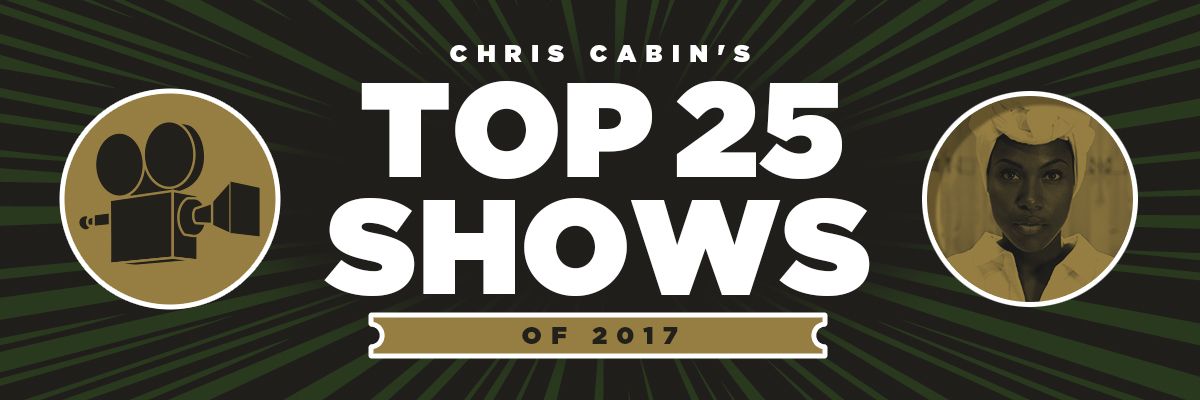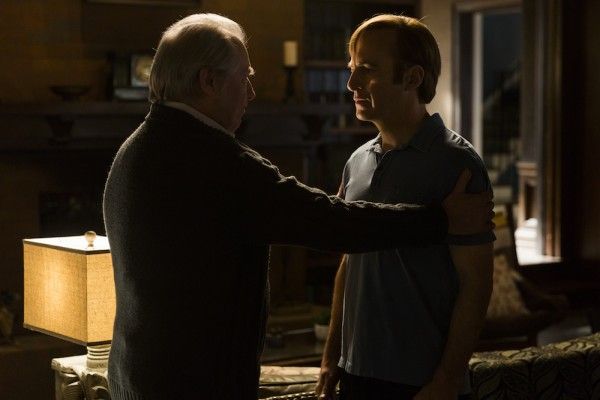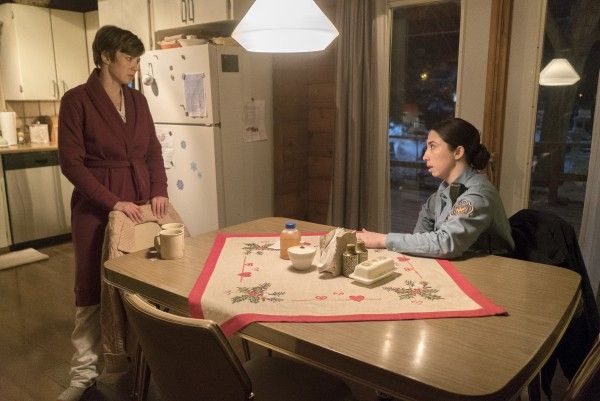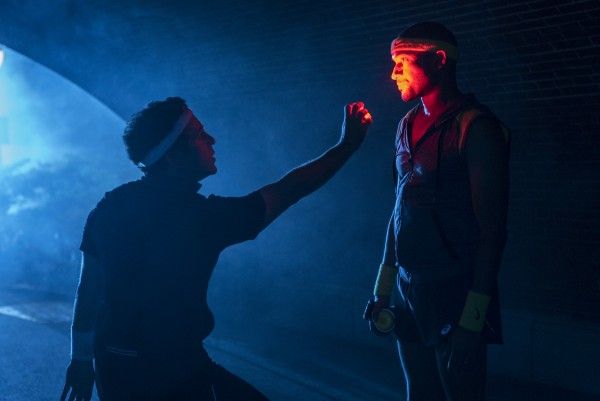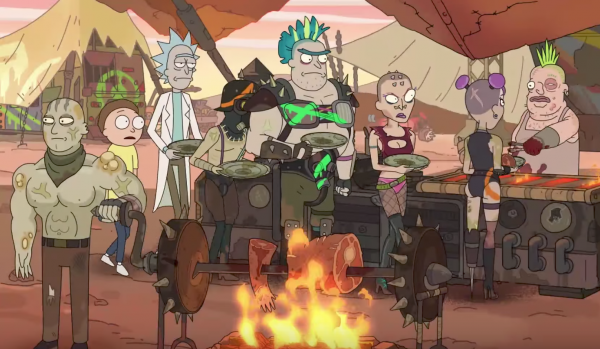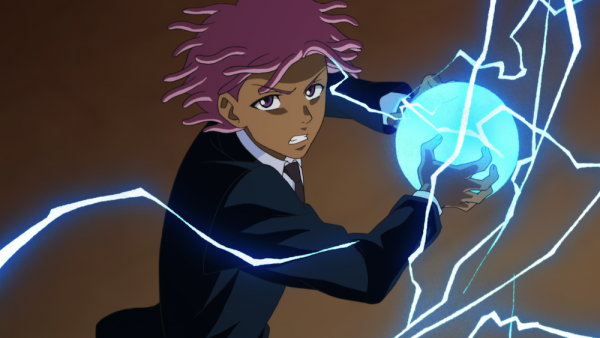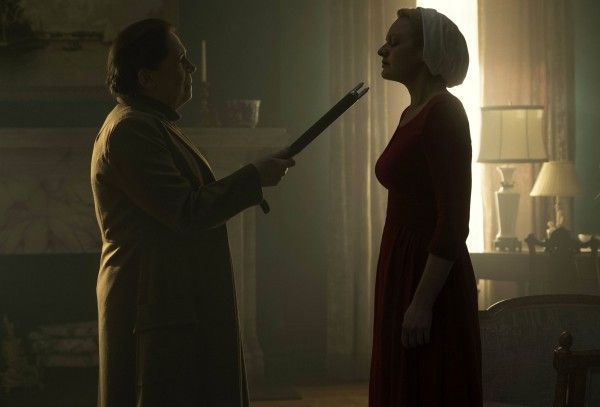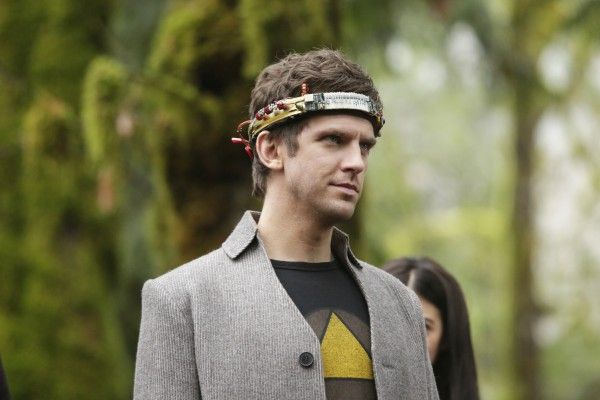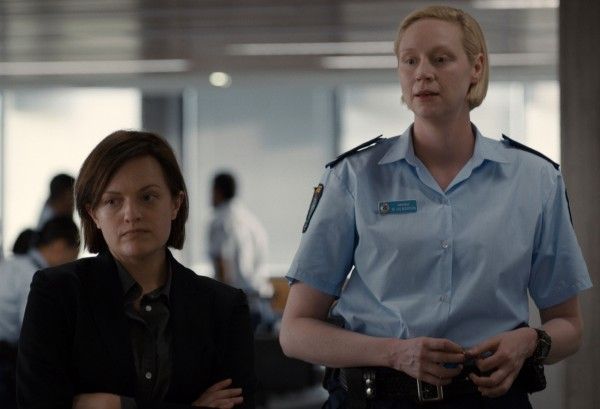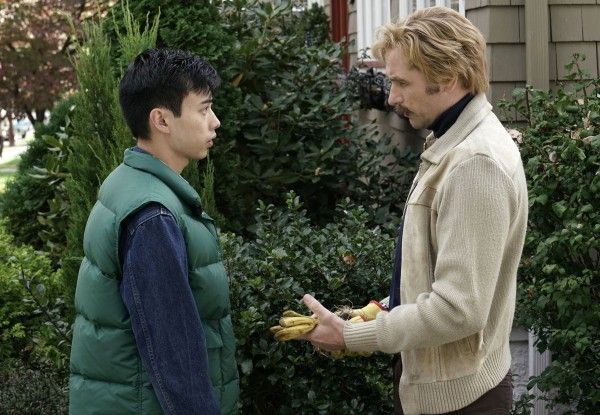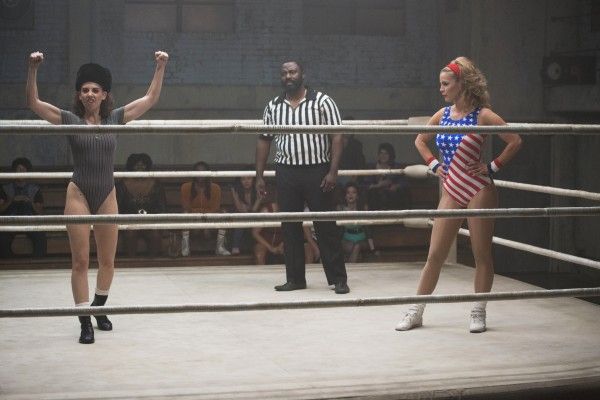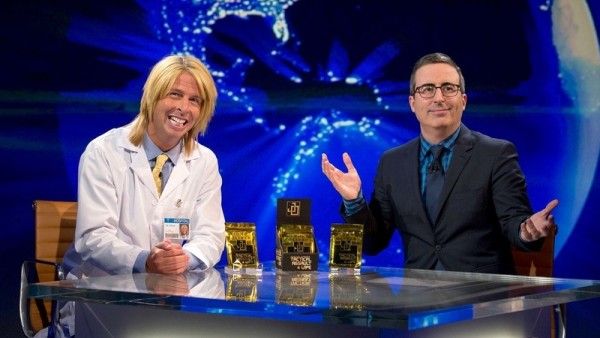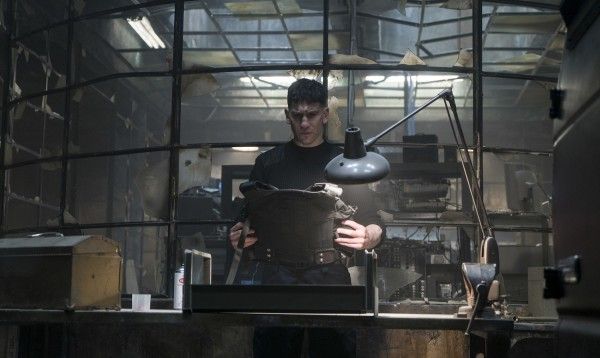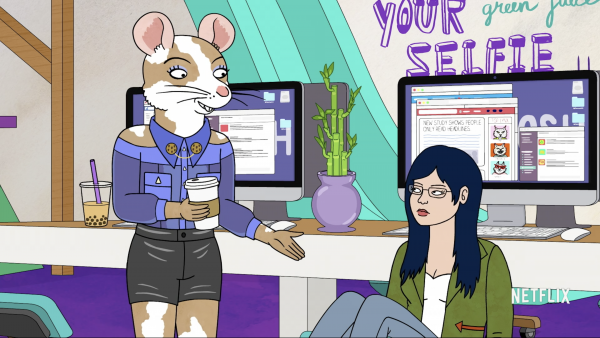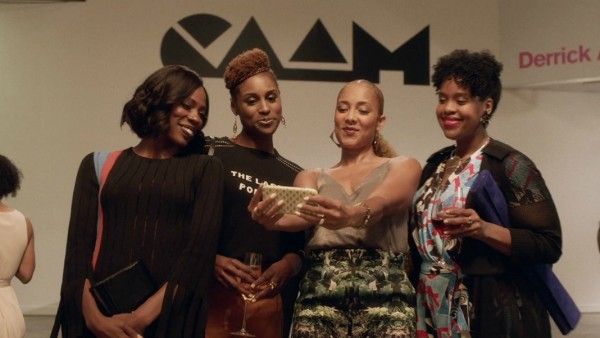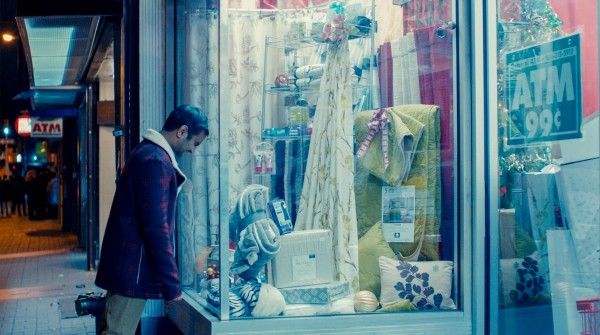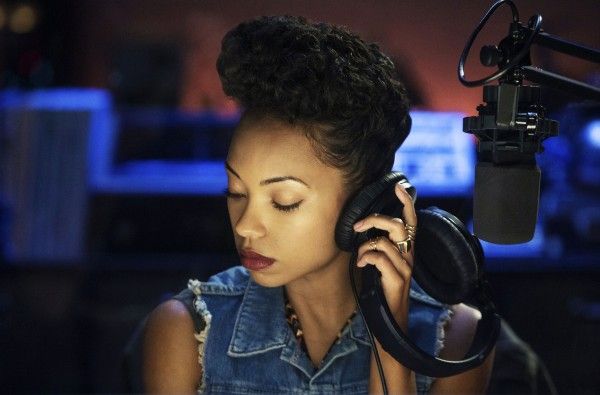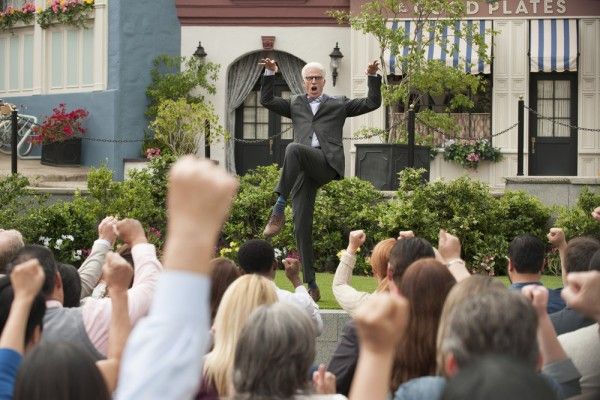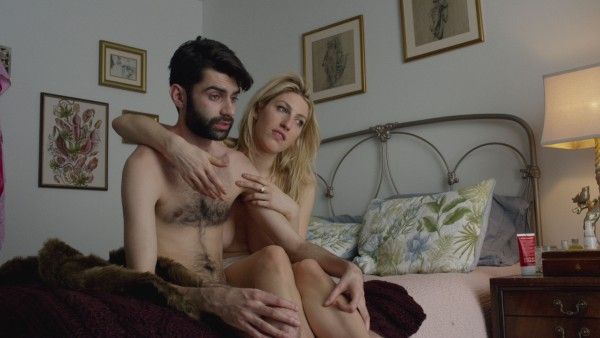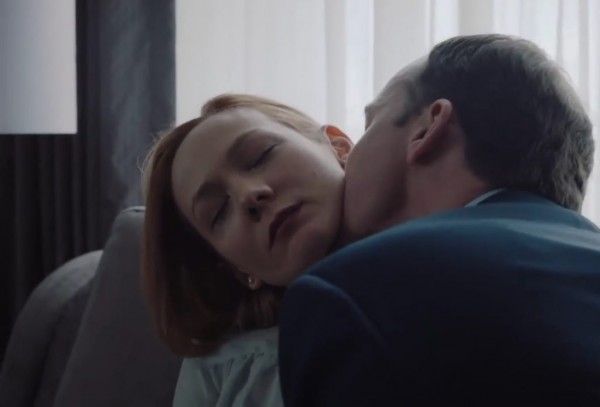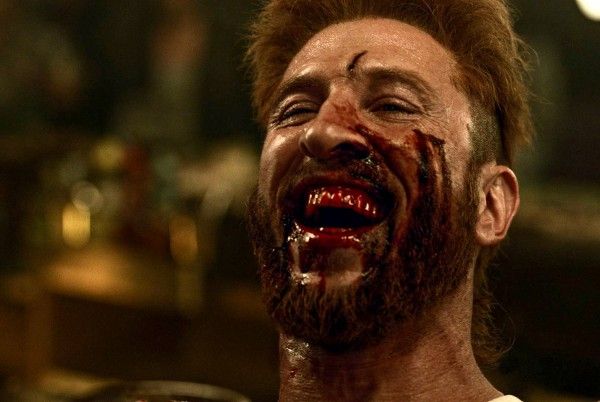The past seemed to be repeating itself throughout 2017. It began with a jokey supposition you had heard in vape-clouded dorm rooms and Simpsons episodes before - imagine if Donald Trump was president - and ended with a grizzled and grumpy Luke Skywalker coming back to fight one last battle for the Resistance. The ludicrous GOP tax bill brought back the fallacies of trickle-down economics, which will only cause the next Great Depression and a few million deaths if we're lucky, and the well-known "rumors" about Harvey Weinstein, Kevin Spacey, and their ilk that had floated around Hollywood and New York for years came back to bite everyone on the ass. Just you try to enjoy a cozy night in with Seven now!
The same thing happened on TV, but it's not like it's a new thing. Fuller House will likely roll cameras on a fourth season later this year and there's already talk of another order of that ghastly Will & Grace reunion, and that's not even getting into that Gilmore Girls mess. And yet, the best TV series of the year came from similar returns, whether its David Lynch's triumphant return to the town of Twin Peaks or Spike Lee's abstracted, unfathomably generous revision of his knockout debut, She's Gotta Have It. Friends from College mined much of its humor from an inability to grow up and stop making the same old mistakes. The not-so-buried feuds between brothers paints the hubbub that becomes a statewide catastrophe in Fargo's diabolical third season.
Meanwhile, an obsession with repeating what worked in the past seemed to hold entertainments like The Flash, Game of Thrones, This is Us, Ray Donovan, and Shameless in a cyclical rut. That's true of many of their narrative decisions but also in form and storytelling. The era of allowing one looming dramatic arc to dictate nearly all the action in a season is still upon us and has reduced plenty of otherwise promising shows into safe and mundane serials, only elevated in rare respects by the strength of the cast in question. The best TV of 2017 didn't just return to old ideas, characters, or predicaments; they also confronted them and revealed why those elements must change or become irrelevant. To progress, one must often let go of what they once loved and travel into the unknown, and if that doesn't sum up 2017, I honestly don't know what would.
For more of the Best of 2017, check out Allison Keene's top 25 TV shows of the year, Dave Trumbore's list of the best new animated series, Emma Fraser's look at the best songs on TV, and Evan Valentine's ranking of the year's superhero TV.
25) Fargo
An existential and surreal noir played out on the edge of America, Fargo's third season hinged on a fight between unchecked consumption and endless empathy. In one corner, David Thewlis' malevolent, sickening Varga, an agent of corrosive greed who sets his sights on the meager fortune of Minnesota's Stussy brothers, both played with ample comic verve by Ewan McGregor. In the other corner, erstwhile police captain Gloria Burgle (the indispensable Carrie Coon), looking for the man behind the unjust slaying of her son's grandfather. Detours include a soulful, caustic journey to Los Angeles, an animated trip into a tragic future, and a dreamy ode to Peter and the Wolf. The entire contraption fits together seamlessly - almost too much so - but few shows offered up such consistent delights, insights, and meaty roles for a generous cast.
24) Friends from College
This eight-episode comedy series from Netflix was largely dismissed when it was released earlier this year and I have yet to hear a convincing criticism. The fact that Friends from College is set mainly amongst pretty affluent people, from Keegan-Michael Key's budding author to Nat Faxon's retired millionaire, could be seen as a detriment but then, the entire show undermines the seriousness which that sort of affluence (and most adult accomplishments) are given. As co-creators Nicholas Stoller and Francesca Delblanco envision it, most of adulthood involves constructing a complex character for one's self that can crumble into the bedlam of juvenilia with one fail swoop, and Key, Faxon, Fred Savage, Cobie Smulders, Jae Suh Park, and Annie Parisse bring that precarious state into glaring relief.
23) Rick and Morty
Though the past two seasons have proven to be more emotionally exhausting than anyone expected, what makes Rick and Morty's third season work so well is the same thing that made its first episodes so special. That would be the sense of invention and criticism that goes into each episode, whether Pickle Rick is going on an adventure or the titular duo are stuck in a land not unlike that of Mad Max: Fury Road. The show's dedication to a caustic tone, anchored to a perpetually inebriated mad scientist and sociopath who is legitimately smarter than everyone else, is honestly breathtaking and if there was any doubt that a large portion of its fanbase still doesn't get the joke, the infamous Szechuan Sauce event of 2017 should clear that up nice and well. Three seasons in, Dan Harmon and Justin Roiland's wildly imaginative and unwaveringly misanthropic cartoon remains the cherry bomb in the toilet and the burning sack of dogshit on your neighbor's porch.
22) Neo Yokio
I'm merely a casual fan of anime, so I don't get all the references in Neo Yokio, Netflix's best new animated series. That doesn't hinder the the delight of watching the show anymore than not having a working understanding of how a small restaurant works would hinder your enjoyment of Bob's Burgers. As a sheer feat of comic world-building, Neo Yokio, which casts Jaden Smith as the voice of Kaz, a new-money playboy and part-time demon hunter, is a thing of beauty, featuring some uproarious vocal work from the likes of Jude Law, Susan Sarandon, and Jason Schwartzman. Beyond that, the lovingly designed series, the brainchild of Vampire Weekend frontman Ezra Koenig, functions as a satirical critique of class and the utility of fashion or really any art, going as far as to make an extended joke about an ugly Damien Hirst piece. Indeed, much like Koenig's other project, Neo Yokio conveys the strangeness and pettiness of the upper class while also openly admitting the comforts and pleasures that such a station in life affords.
21) The Handmaid's Tale
Can we thank Margaret Atwood for the recent reckoning against sexual assaulters and terrorizing of men in power? Even if she was the singular force behind it all, she'd never take the credit. It's nevertheless difficult to not see the release of Hulu's adaptation of her The Handmaid's Tale as the warning sign of what was to come, in the downfalls of Harvey Weinstein and his ilk as well as the draconian laws meant to control women's bodies tucked away in the monstrous Republican tax bill. Elisabeth Moss proves to be a stirring Offred, and director Reed Morano molded her aesthetic of a manicured suburban landscape to also reflect the ugly, horrific sex crimes that go on behind the front doors. Indeed, what's consistently most terrifying about what Morano and Atwood made here is how normal they make true hell look and feel when no one's getting raped, beaten, tasered, or killed directly on screen.
20) Legion
Where Netflix presented us with the most thematically rich Marvel adaptation to date with The Punisher, FX went about making the most formally audacious Marvel adaptation with Legion. Noah Hawley churns through a variety of visual gimmicks and popular techniques to reflect what life must be like for David (Dan Stevens), the most powerful mutant alive who often is chased, confined, or being tortured within his own mind. Aubrey Plaza nearly steals the entire show as Lenny, the best friend David might have accidentally killed or may have been hiding a powerful, evil, and once-dormant mutant named the Shadow King. The cerebral fireworks are a wonder to behold, which veils a dark, acidic study of the artist as an indecisive and guilt-ridden God, decked out in Millennial dress and fitted with the power to psychically tear you to shreds.
19) Top of the Lake: China Girl
Though not quite the eerie, devastating behemoth that its predecessor was, China Girl proved to be an equally intoxicating and unpredictable vision of femininity, motherhood, and identity as the first season of Top of the Lake. The main plot, about a young woman's body found stuffed into luggage off of Sydney's shores, is gripping procedural but the insights come from Robin Griffin's dealings with the daughter she never knew she had and the disturbing life her daughter has built for herself in her absence. With superb supporting turns from Gwendoline Christie, Nicole Kidman, Alice Englort, and David Dencik, China Girl still evinces a dazzling world of crime and perversion, tended over by broken but dedicated people who might be able to get their shit together if they weren't so busy trying to put other people's lives back together, a task at which they often fail.
18) The Americans
It's understandable that the fifth season of The Americans couldn't quite match the gripping, sublime heights of Season 4. After all, this season didn't have the great Dylan Baker hanging around as a CDC mole. Nevertheless, the latest season began to dig into what will likely be the final conflict of the series, that between the perspectives of Matthew Rhys and Kerri Russel's domesticated spies on what nationalism should entail. The programming of Paige suggested that there's nothing too duplicitous for their mission, but even as that started, one could feel Philip getting uneasy and his partner getting all the more bold. This fluctuates in the season - to say anything about what happens after episode 3 seems like a spoiler - but the endgame isn't pretty, as anyone who watched the last two episodes will attest. For whatever changes to the seasonal narrative, The Americans continues to be one of the best shot and acted dramas on TV and arguably the best thing FX has produced thus far.
17) GLOW
I'll be honest: I was in love with GLOW from the moment I heard Scandal and Patty Smyth's "The Warrior" blaring over the opening credits. Most shows would not have paid off such a ludicrous early devotion but GLOW did, thanks largely to a fantastic ensemble cast that sets Alison Brie's Ruth Wilder as the two-timing anti-hero against Betty Gilpin's Debbie, the betrayed wife of the man Ruth's been fucking on the low. They are the main figures in this detailing of the famous female wrestling organization of the title, but not unlike Orange is the New Black, the show is made by its dedication to even the seemingly smallest characters, from Gayle Rankin's She-Wolf to Sydelle Noel's Cherry Bang, and taking time to explore each of them as rounded-out, deeply endearing characters. Marc Maron also has his best performance outside of Easy here, but the real surprise is just how fun the series ends up being for having a bedrock of disappointment, betrayal, infidelity, alienation, and poverty. Not unlike "The Warrior," the enthusiasm that the cast and the creative team, fronted by Liz Flahive and Carly Mensch, have here carries the show even when the overall plot of the show becomes a bit repetitive.
16) Last Week Tonight with John Oliver
Though its host swerves more toward the Pod Save America crowd than the Chapo Trap House audience, Last Week Tonight with John Oliver remains arguably the most populist repository for progressive ideas currently out there. Perhaps The Daily Show is holding onto that title in reality but where Trevor Noah has recalibrated his show's format for a generation that watches most TV online or through apps, John Oliver continues to do the same show he's been doing since HBO let him loose. Whether dunking repeatedly on Alex Jones or leading us through the purposefully complex world of gerrymandering, Oliver came equipped with a bevy of research, a loamy writers' room, and the confidence of a seasoned solo performer. He offered an often hilarious half-hour of news and humor weekly for most of the year but more importantly, he brandished the intelligence to know when its time to get angry about the Creamsicle in Chief trying to start World War III and when its time to hire someone to dress up like a talking squirrel to make a point about the dangers of coal mining.
15) The Punisher
Following Eric Paddock's slaughter in Las Vegas earlier this year, the thought of a Punisher TV show didn't seem entirely tasteful. Who needs another show about a heroic yet moody white dude who saves everyone with his endless stream of guns? No one but people who want nothing but that, for the most part. So, it was a shock to find out that The Punisher, which follows the vigilante Frank Castle's (Jon Bernthal) continued search for the people who killed his family, openly confronts where violence like Paddock's originates. As Steven Lightfoot and his creative team see it, the root of violence is in the conditioned inability of most men to talk openly about vulnerable feelings and weaknesses, therapeutic tendencies that were cast off as feminine or simply not manly in the age of the Baby Boomers. For former soldiers, the issue is only exasperated for obvious reasons, and that's where much of the show's drama comes from: discussions between men about what hurts and scares them without the protections of heroism. And yet, when it comes time for some greedy mercenaries to get taken out, the series does not skimp on the bloodshed. The Punisher lacks the style of Daredevil's breakout first season but in terms of its subject matter, it has it over nearly every other Marvel production on the block.
14) BoJack Horseman
Four seasons in and BoJack Horseman is still the best animated show on TV, beating out heavy competition from the likes of Rick and Morty, Bob's Burgers, and South Park. That's thanks mainly to the fact that the series has always anchored itself to BoJack and his self-destructive nature, his inability to ultimately care about anyone else when they need it rather then when he's ready to do it. The latest season took a different approach by tracing the hell that BoJack's mother lived through before seeing BoJack attempt to become a father worth trusting and loving. Things don't go so well, as you might imagine, and the season makes a surprisingly strong case for forgetting as much as forgiving when it comes to the psychological damage that's done by an unfortunate, even abusive childhood. The colors and the creatures are still a wonder to behold, but what keeps BoJack Horseman so essential is its brash yet sincere attitude toward the pain we carry with us and the simultaneous necessity and absurdity of keeping it alive.
13) Insecure
The greatest revelation of Insecure's dynamite second season is sex. Though race and femininity continued to be at the forefront of Issa Rae's mind as her character continues to deal with the fallout of her relationship with Lawrence, what made Season 2 so much more insightful and bracingly modern than the first season was seeing how Issa dealt with dating and finding some decent D. Rae's dialogue got frank about how awkward it is to begin a frivolous sexual relationship when its not online, and got a bevy of laughs from her and her friends coping with a city full of guys that can't even get through dinner and drinks without turning them off. The drama at her work touched on issues of racism and white privilege that are barely ever brought up outside of a Ta-Nehisi Coates lecture, but what made Insecure go from a good show to a great show this year is being open about sex, a subject important to nearly everyone on this planet and yet forbidden from serious discussion in schools, families, and jobs across the nation.
12) American Vandal
Who drew the dicks? That's the question at the center of Netflix's breakout comedy of 2017, American Vandal, an uproarious parody of investigative journalism and podcasts like Serial and S-Town. The main suspect is Dylan Maxwell, played by Jimmy Tatro in an inspired comic performance, whose assumed guilt is investigated by budding high school journalists Peter and Sam (Tony Alvarez and Griffin Gluck). From there, American Vandal drops us into the petty grudges that dominate high school in the classroom as well as in the break room, and beyond those confines to infect home life and main street. The show's creators, Tony Yacenda and Dan Perrault, enjoy toying with ideas of social behavior and what the basis of a solid friendship or relationship but for the most part, their endgame is to make you bust a gut. In that uniquely difficult task, they have succeeded consistently without losing hold of the show's numerous storylines.
11) Master of None
Master of None's exquisite second season begins with Aziz Ansari's Dev still in Italy, seemingly healed up from his last breakup and in love with the art of making pasta. He's also started a flirtation with Alessandra Mastronardi's Francesca, but soon enough, he's back in New York, going on innumerable dates and hosting a cupcake-cooking competition show for a vivacious and monstrous boss (Bobby Cannavelle, excellent as always). It's his tentative romance with Francesca that ends up in the fore, however, when she takes a sojourn to the Big Apple and grows closer to Dev. Lena Waithe has her moment in the sun with the moving Thanksgiving episode and Eric Wareheim continues to steal numerous scenes with abandon, but it comes back to the connection between two people who can't get over each other and yet are unsure of the longevity of their union. The movies have failed to produce many (if any) great romantic comedies this decade. Master of None's second season (and its first, while we're at it) fills that need by its sublime final episode.
10) Dear White People
Dear White People was a risky proposition when it was a movie being released in limited markets. As a Netflix show available to much of the American public, it's a minor type of miracle. Not only did the first season of Justin Simien's whip-smart and wickedly funny series sport Barry Jenkins' first piece of work since the groundbreaking Moonlight, it also blended established cast members from the movie with a number of new performers. The entire ensemble is lively and compelling, and they take on major issues, ranging from a near-death experience at the hands of a zealous cop to a blackface party that serves as its opening movement, without the preordained presumption of importance. For Dear White People, the most horrific and embarrassing stories of racism are everyday things that must be processed and confronted, not just a news story that can be forgotten in a flash before Grey's Anatomy is on.
9) The Good Place
At the heart of NBC's best comedy series since 30 Rock is the question of what makes a good illusion. That's the job that Ted Danson's Michael has taken upon himself in the hopes of creating a secretly hellish existence for the dead, most prominently Kristen Bell's Eleanor and William Jackson Harper's Chidi. The brilliant turn of the second season is making Michael work with those he's imprisoning, confronting the needs and wants and desires of the very people he's meant to be torturing. The humor is bold and consistent, and Danson has never been so engaged in his post-Cheers career, but what makes The Good Place so unique is its sly deconstruction of what its like to create an illusion that's meant to illicit a specific feeling, not unlike how one envisions and must constantly rethink a TV series.
8) Easy
What has set Joe Swanberg apart from most of his contemporaries is his level of production. The guy has released a movie a year (sometimes two) essentially since he came on the scene in the aughts, and the movies have only gotten better over that time, culminating with this years excellent Win It All. That, like Easy, was released on Netflix, a platform perfectly suited to Swanberg's production and distribution models, and what he's done with Easy proves that he is amongst the most influential American directors of the last two decades.
Each episode of Easy is essentially a short film, sometimes with familiar characters, like Marc Maron's cranky illustrator, and sometimes with brand new ones, such as Aubrey Plaza's morally conflicted neighbor in Season 2's opening episode. Rather than attempt to build a looming narrative arc, Swanberg looks for unexplored human interactions that he can set amongst a series of characters in his homeland of Chicago and the result is one of the most fascinating, relatable, and hilarious shows that this decade has produced thus far.
7) The Girlfriend Experience
The effects of capitalism on personal identity has always been at the heart of The Girlfriend Experience, as much in its sensational second season as in the original film by Steven Soderbergh, who continues to serve as executive producer on the series. What makes the second season of the series so much more knottier and riveting is that the struggle to maintain both an inner life and the outward image of a unique, trustworthy personality is more on the surface, not nearly as elusive as it was when Riley Keough's lawyer-escort was at the center. By separating their creative goals, Kerrigan and Seimetz seem to more clearly communicate their ideas in their episodes and storylines but also bounce off of each other in concert between their halves. As a result, they have molded one of the greatest seasons of television that 2017 has produced.
6) American Gods
Any and all doubts as to Bryan Fuller’s talents should have been torn asunder by the end of Hannibal’s extravagantly mad third season. American Gods suggests even bigger vistas for the ousted creator of the troubled Star Trek: Discovery, and his treatment of Neil Gaiman’s beloved source material is at once loyal without being rigid, imaginative without straying too far from universal truths. The tale of the man named Shadow (Ricky Whittle) and Mr. Wednesday (a never-better Ian McShane), bonding on a driven tour of the states, provides a sturdy narrative backbone, even as the season is structured more like a biblical text with fables peppered about that point toward the thematic thicket that Fuller, Michael Green, and their writers have laid out here. As always with Fuller, its the unbridled desire that seems to pulse behind each image that makes the show so alluring: a red-tinted lair of sex and death, a gleaming digi-limo fitted with 3D printed henchmen, and Gillian Anderson playing a lascivious, threatening Lucille Ball are only the most memorable delights. Fuller’s narrative is dense yet clear but the irresistible draw of the series is in the sensual detail that the creative team gives to each character and action, where it be the last song you sing before you die in a car crash or the sound and feel of lowering yourself into an overdue hot bath.

